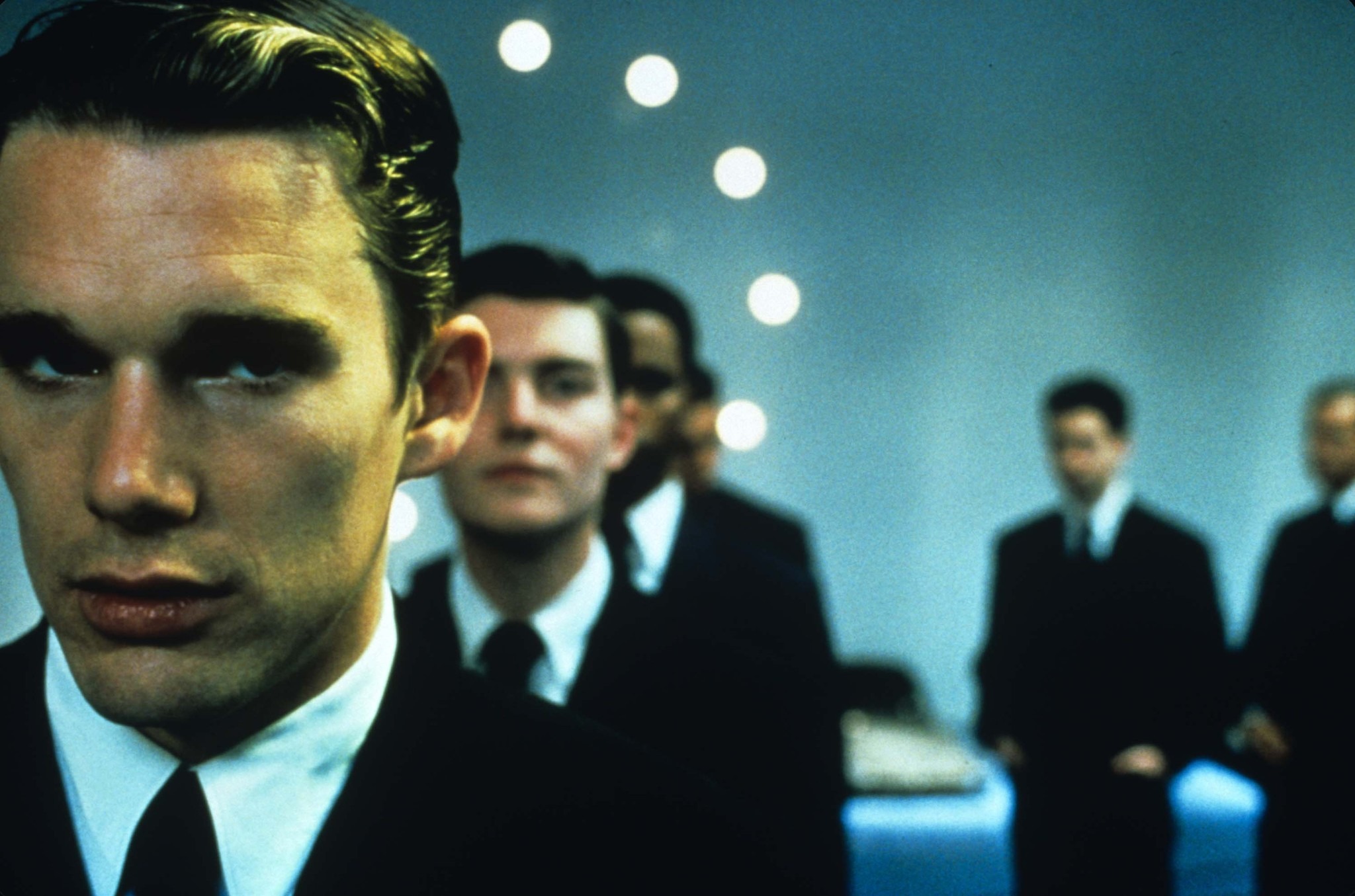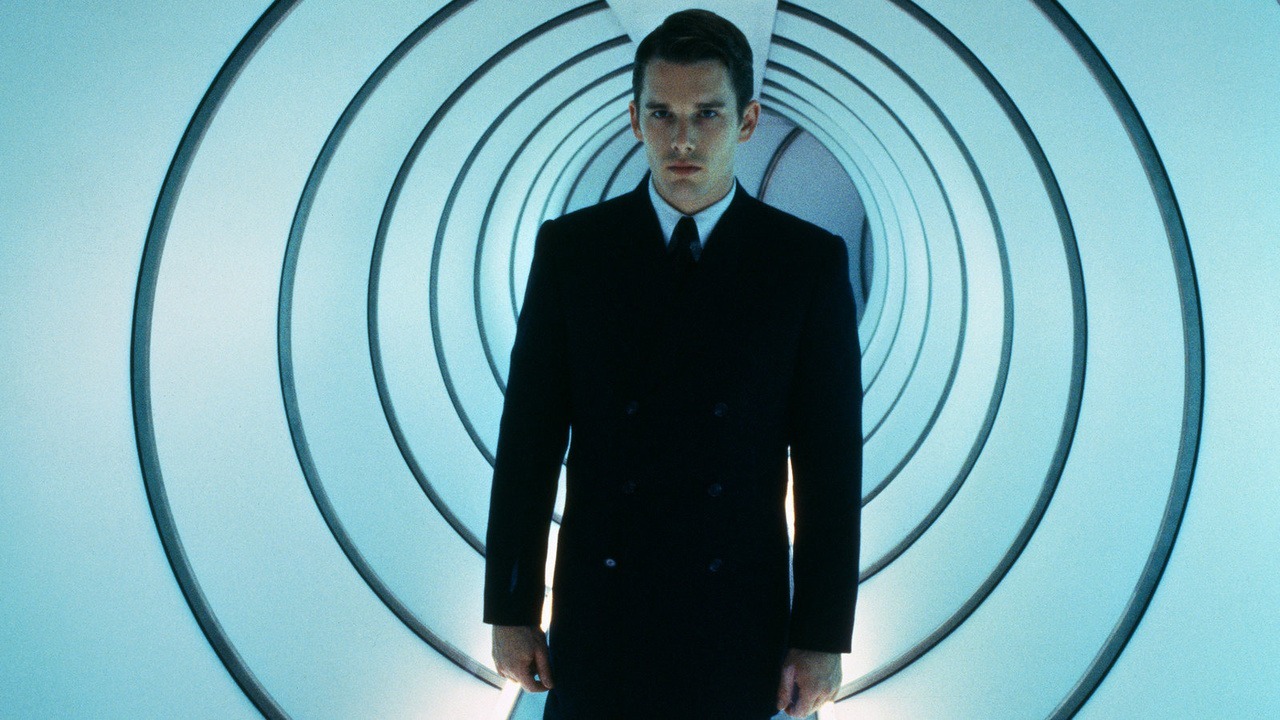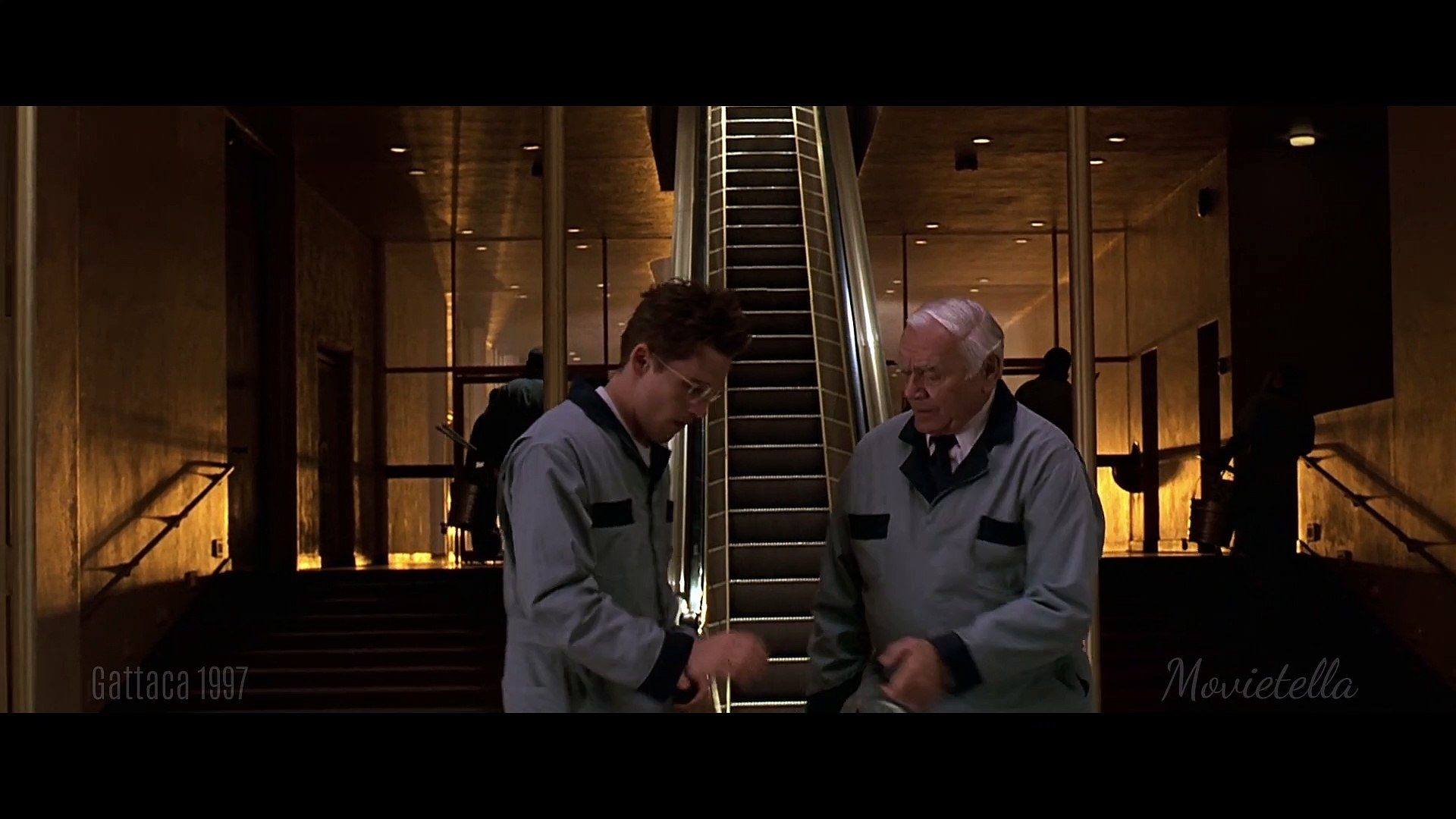Gattaca (1997)

Gattaca is a dark, thought-provoking science fiction film released in 1997, written and directed by Andrew Niccol in his directorial debut. Set in a dystopian future where genetic engineering plays a central role in determining a person’s fate, the film explores themes of destiny, free will, and human potential. The title of the film is derived from the DNA bases – guanine, adenine, thymine, and cytosine – which are essential components of the genetic code.
The story revolves around Vincent Freeman, played by Ethan Hawke, a man born naturally in a society where most individuals are genetically engineered to be perfect. In this society, the genetically “inferior” are relegated to a lower status and denied opportunities, while the genetically “valid” enjoy the privileges of a successful and predetermined life. Vincent, however, dreams of traveling to space, despite being considered an unfit candidate due to his genetic makeup.
Uma Thurman plays Irene Cassini, a fellow employee at the Gattaca Aerospace Corporation, where Vincent works under a false identity in order to fulfill his dreams of space travel. The film examines the emotional and societal consequences of living in a world where genetics determine one’s value and opportunities. Irene’s relationship with Vincent adds an element of hope and humanity to the film, showing that love and determination can transcend genetic limitations.

Jude Law plays Jerome Morrow, a genetically perfect individual who becomes paralyzed due to an accident. Jerome assists Vincent by lending him his identity to gain access to the prestigious Gattaca Corporation. Their partnership represents the contrast between society’s obsession with perfection and the human spirit’s ability to overcome obstacles. Jerome’s tragic backstory highlights the emptiness of a world that prioritizes genetic makeup over individual worth.

The film’s visual style is another key aspect of its impact. Directed with a cold, clinical aesthetic, Gattaca is filled with sleek, minimalist designs and precise cinematography, which mirrors the sterile, controlled world in which the characters live. The futuristic setting, with its stark contrasts between the technologically advanced society and the characters’ emotional struggles, creates a powerful atmosphere of isolation and control.

Ultimately, Gattaca is a commentary on the dangers of genetic determinism and the loss of individuality in a society obsessed with perfection. The film raises important ethical questions about the limits of technology and the value of human life, reminding viewers that true worth comes from one’s choices and aspirations, not from the genes they inherit. It remains a poignant and relevant exploration of humanity’s fight for freedom in a world of predetermined paths.










